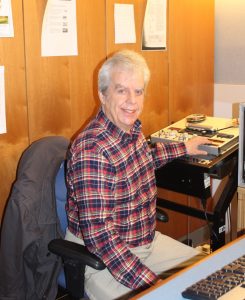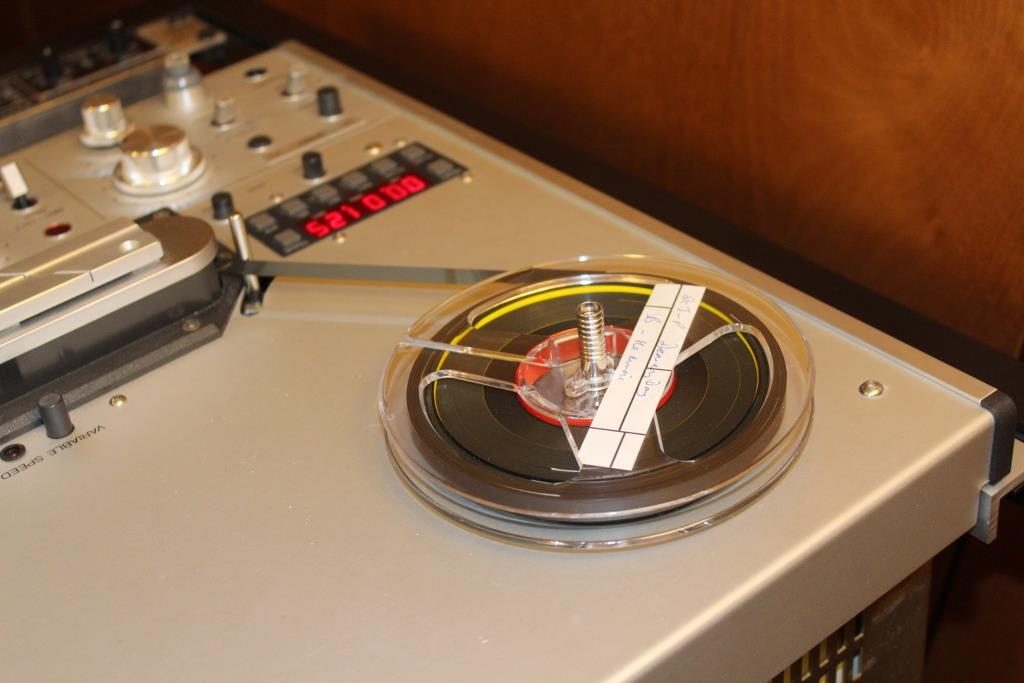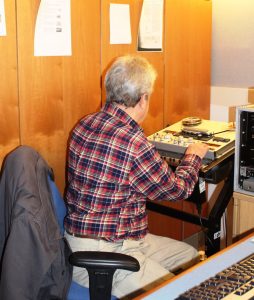Andy Popperwell shares his experiences volunteering for the Essex Sound and Video Archive

Nineteen (boxes) times fifty-six (tapes) is a thousand and sixty four. That’s an awful lot of open reel tapes, even if they’re five-inch ones. This is the estimated number of remaining tapes to be processed from a collection of 79 boxes, formerly the property of the late Chris Bard, who presented Sunday morning programmes on BBC Essex for many years (Accession Number SA459).
My name is Andy Popperwell and I’ve just become a volunteer in the Sound Archive at the Essex Record Office. My task is to review these tapes and help to decide which ones should enter the Archive and which ones shouldn’t. The key criterion is whether they have relevance to Essex. Some do; some don’t.
I’ve made a start, and the range of material is fascinating. Everything from Polish Christian radio stations after the fall of communism to ecumenism in Essex villages.

Learning the archive protocols was the first step. I spent many years as a Studio Manager (Sound Engineer) in the BBC World Service, working on high-speed current affairs in 40 languages, where the pressure was to get the interviews edited as quickly as possible and into the live programmes, 24 hours a day. Here, in the calm atmosphere of the Archive, it’s a question of treating each tape reverently, making sure that temperature and humidity are appropriate and learning how to do a ‘library wind’. This means that, after listening carefully and making notes about the content, each tape is wound back at slow speed so that it’s neatly positioned on the spool and there’s no chance of physical damage.

It’s great to be learning new skills while at the same time using my previous experience to help with the work of the Archive. I’m also a volunteer at Copped Hall, on the edge of Epping Forest. It’s a 1750s mansion which was destroyed in a huge fire in 1917, and we’re restoring it. Apart from general labouring, I’m setting up Copped Hall’s own sound archive, trying to record the lives and stories of those who have worked over the last 25 years to rebuild the old place. Do come and visit us on one of our regular Tour Days – third Sunday in the month.
Both these volunteering opportunities are feeding into my other big interest: I’ve returned to being a student, doing a Masters by Research at London South Bank University. I’m interested in what Essex in general and Copped Hall in particular sounded like in past times. I hope that, as well as expanding my brain, it will be possible to use my research to recreate the soundscapes of the past, and specifically the 1750s, when the Hall was built. The Essex Record Office has a huge quantity of fascinating material to help with my research, including, for example, little pieces of paper with rhymes and poems which the Conyers family, owners of Copped Hall, wrote for each other in the middle of the eighteenth century (Catalogue Reference D/DW Z3). Handling these documents is a real privilege, and a unique connection with the past.

What a wonderful talented volunteer. I’ve visited Copped Hall and if I remember correctly was told it was where Henry VIII was awaiting to hear Ann Boleyn had been beheaded. He doesn’t mention the lovely walled garden there to visit as well as the Hall.